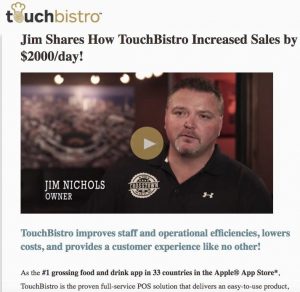
It’s amazing how SEO has come full circle. Back in the olden days of SEO, if you just had a good meta title, description and keywords you could rank in the search engines.
Then the search engines got wise and started looking at the actual content on the page and so the headlines and content also became important.
At some point everyone figured out that links had the biggest effect on SEO, way more than on page optimization, and they switched focus completely.
It was almost as if on page SEO was dead. It was an afterthought because it didn’t have much effect on rankings.
All it took to be successful was to get more links than your competitors that had your key phrase as the anchor text.
I know because I used this tactic to get my SEO company to #1 for “seo services” (I sold the company shortly thereafter).
Then Google started making big changes to their algorithms. All of these link schemes got penalized. Hundreds of thousands of websites lost rankings. Millions in revenue was lost overnight.
Link building as it was known, was dead forever.
But there was a new way to do SEO.
Get natural links pointing to the pages of your site.
Not links that had loaded anchor text, but links that would happen naturally in the flow and evolution of the internet.
I realized this as I was doing some hardcore preliminary research for some new SEO software I have been working on.
I was looking at the links of a bunch of #1 ranked websites and I noticed that the vast majority of the links didn’t have the key phrase in the anchor text.
But if the links didn’t say what the page was about how would Google know how to rank it?
Through on page SEO.
That’s right, on page SEO is back with a vengeance.
Titles, descriptions, H1 tags and content have never been so important. Link building alone won’t cut it anymore. You must get awesome relevant links and have amazing on page search engine optimization to rank high in Google.
I’ve been able to dramatically increase rankings on pages that have been stagnant for months simply by doing an on page SEO overhaul.
It’s amazing how well it works to increase rankings.
Let’s give a brief overview of the most important pieces to on page SEO.
The Title
So much has been written on titles and descriptions that I won’t include a “how to” here, but I will say that it is extremely important to include the most important key phrase you want to rank for right at the beginning of your title.
This is also true if you’re writing a blog post because most posts become the title of the page as well.
It’s OK to include a couple of phrases in your title but try to limit it to just a few.
The Description
Google says that they don’t use the description in their algorithm to determine rankings anymore. But according to several SEO’s they do use click through rate from your listing. So my advice for your description is to use it to make people want to click through.
Header Tags
You should have one main header tag (H1) that is mostly a reflection of your title tag. In other words, it should have your main key phrase first and then whatever you want after that. Blog posts automatically make the blog post title (which is separate from the page title) into an H1 tag so if you put your main phrase at the beginning of the blog post title you are set.
After that you can have H2 – H5 tags in your content as it makes sense. Don’t put your main key phrase in every header tag. Keep the content sounding natural.
Page Copy
Much had been made about content, and how it is king (or not), and how much you should write etc.
You’re content needs to be long. If you want to have a real shot at top 3 rankings then I would highly recommend you go over 1500 words. Depending on the industry you may have to go way more than that. I recently wrote the post Get Paid To Blog – 121 Blogs That Pay For Guest Posts that has over 10,000 words because there were already some pretty content heavy blogs ranking in the space.
In this content one of the frequently asked questions is “how often should I include my key phrases?” I don’t know if there is a perfect answer but I will tell you that including even parts of your key phrase too many times can hurt you. As a good rule of thumb I would suggest you include your key phrases 1 time for every 1000 words of content.
If that seems like too little don’t forget that you also need to include variations of your key phrase in the content as well. For example if your main key phrase is “phoenix real estate” you would also want to include terms like “realtor” and “homes for sale”. This way the page becomes more about a topic and not just a phrase.
The last important piece to the on page content is the linking. Both internal linking and external linking are very important. Don’t be afraid to link out to relevant pages that make sense to the topic you’re writing about.
And especially don’t forget to link to other relevant pages in your own website. This is something else I have seen have a direct impact on rankings and it is so easy to do.
So if on page SEO is something you have neglected and are stuck on page 2 or lower in the rankings, go back and give it an overhaul. You’ll be surprised how much your site can climb the rankings from simple changes.
Digital & Social Articles on Business 2 Community(71)






